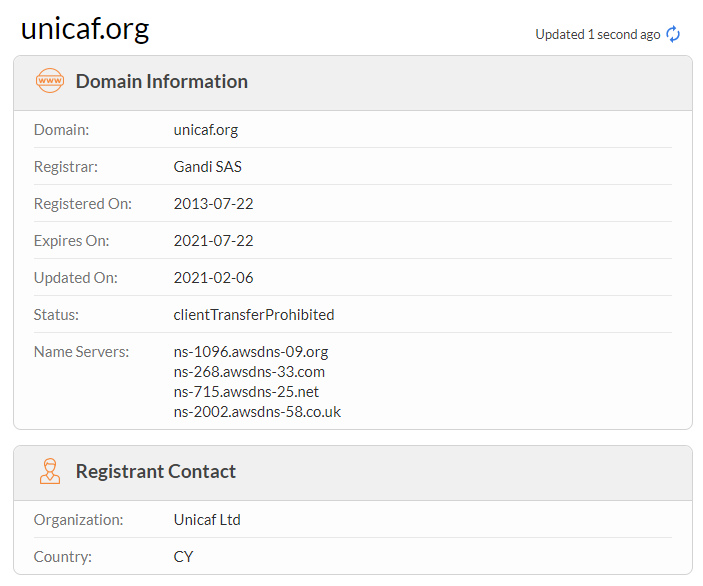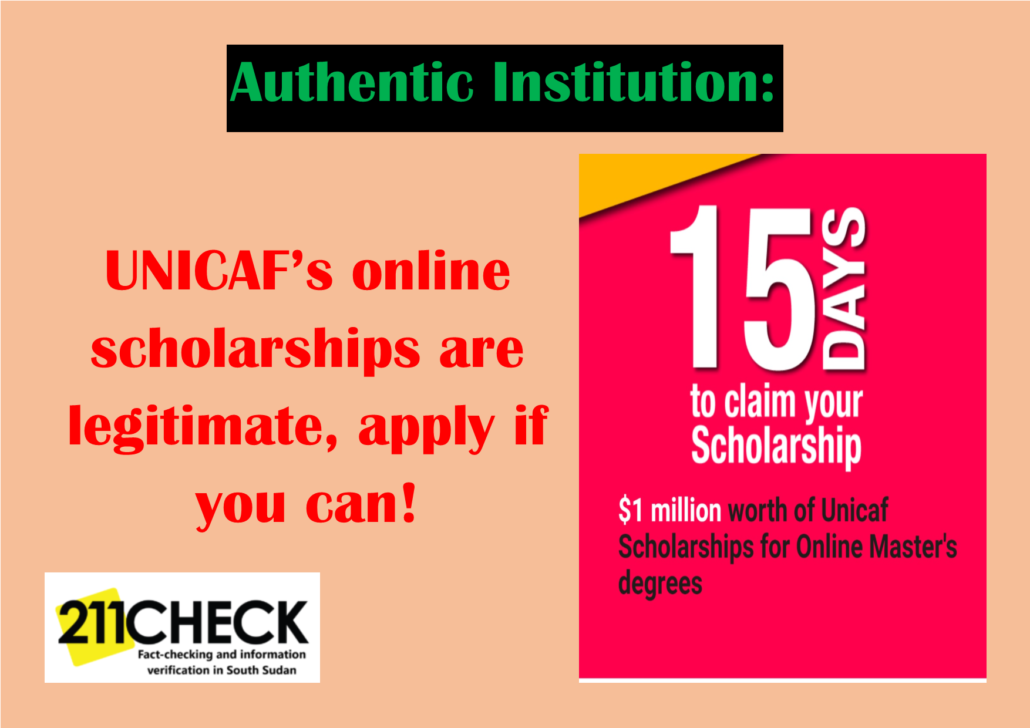Fact Checked: Is online renowned Unicaf University a legitimate institution?
Author: Emmanuel Bida
Online scholarships offered by Unicaf University are not fraudulent, according to the 211 Check investigations.
Due to the increase in online deception, many South Sudanese have been wondering if the Unicaf University is a legitimate and an accredited learning institution in Africa and globally.
Credible research done by 211 Check identified Unicaf University as accredited by the British Accreditation Council, Zambia Higher Education Authority and Malawi National Council for Higher Education.
The certifications, therefore qualifies the institution to be a genuine organisation with administrative offices in Cyprus, which manages Unicaf Universities in Zambia and Malawi respectively.
211 Check findings also identified Unicaf University as a member of the United Nations Academic Impact (UNAI) and the Southern African Regional Universities Association (SARUA).
Evidence
In an exclusive interview with 211 Check on Monday, Okello Peter – a South Sudanese Unicaf’s communications student testified that the university is recognised.
“I have actually done some courses with Unicaf, before I got the scholarship including a course on professional communication in the workplace.
“They offer scholarships in which they work with other universities across the globe mostly in the United Kingdom,” said Okello, currently studying Master of Arts and Communication, Digital Strategy at Liverpool John Moores University, an affiliate of Unicaf.
It should also be noted that there has been no record or complaints available in the public domain, regarding Unicaf University being a scam, since it was founded in 2012.
The institution has an active Twitter handle, Facebook page, LinkedIn, and Instagram.
According to Whois – an online tool used to verify fake websites, Unicaf’s web is legit, as seen in the link: https://www.whois.com/whois/unicaf.org

Conclusion:
Unicaf University online scholarships are not fraudulent. The institution is legitimate/authentic.
NOTE: Be aware of numerous online FAKE institutions who scam individuals or groups, in the name of awarding scholarships.
Internet fraud: Is a type of cybercrime scam or deception carried out on the Internet and could involve hiding of information or providing incorrect information for the purpose of tricking victims out of money, property, and inheritance.
To prevent it, confirm the e-mail of the sender before you respond, make sure you ask for proof of their identity and do a thorough quick research about the company they are calling you from. NEVER give out confidential information when asked either by email or on phone.
To know more about our fact-checking process, click, https://211check.org/how-to-fact-check/ or contact us via 211check.org to present a claim – our team will immediately fact-check it and send you an immediate feedback.


